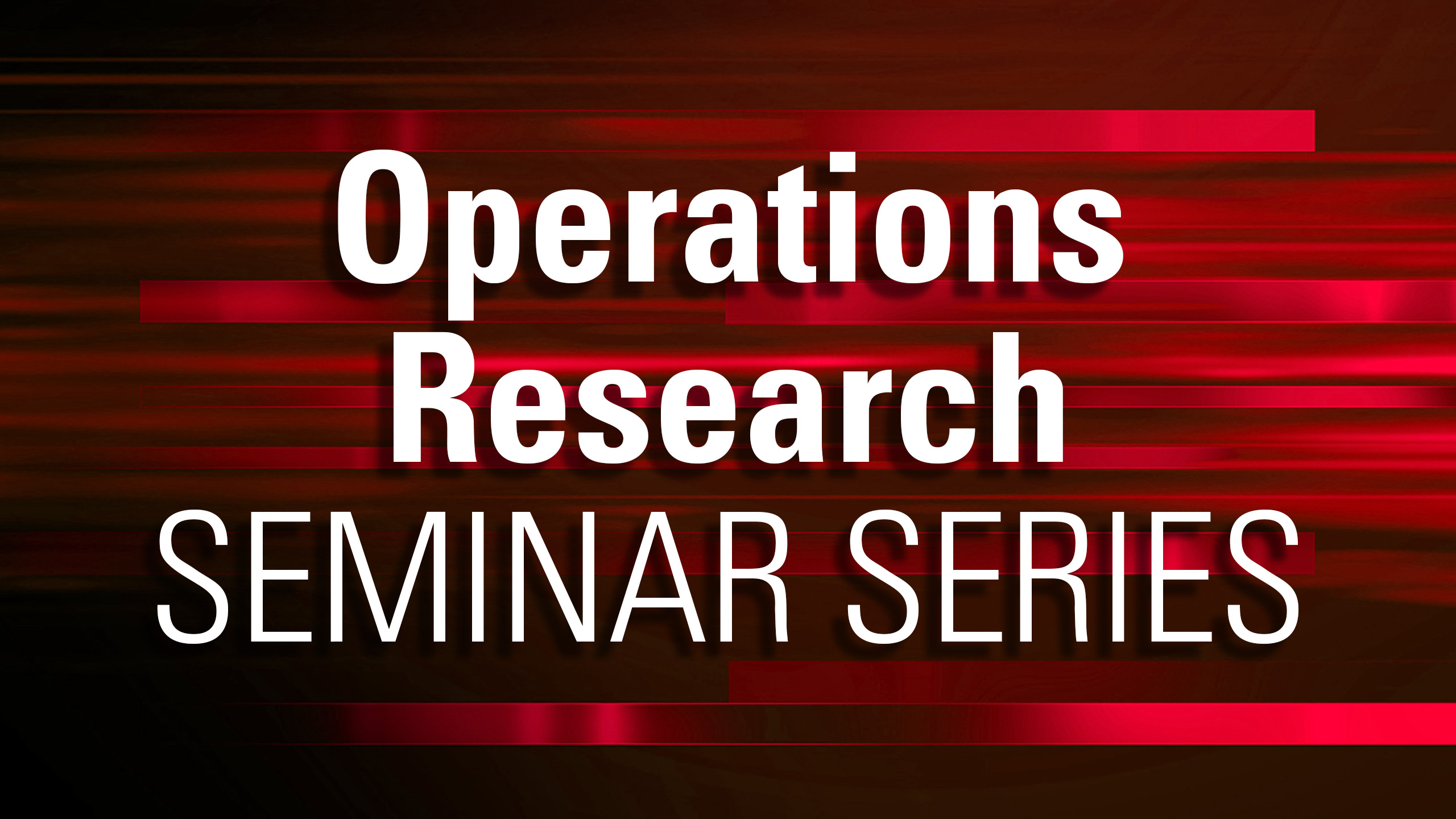

Come out and support OR Ph.D. Students Yamil Essus, Yining Huang, Cameran Lisy and Sebastian Rodriguez Cartes as they practice their talks for the upcoming INFORMS Annual Conference.
Watch it Now
Passcode: i=S49y6B
Download the students’ abstracts
Yamil Essus
Advisor: Benjamin Rachunok
Vehicle electrification is one of the primary pathways to decarbonizing transportation, but may have unintended consequences during prolonged power outages. While the widespread adoption of electric vehicles appears promising, it also links mobility and electric power availability. Consequently, during periods of blackouts a high rate of EV adoption can pose a critical challenge in ensuring access to essential services as households are unable to charge their vehicles. we show how the interaction between geography, technology, and demographics impacts access to essential services during prolonged power outages. Our initial results show that EV adoption will exacerbate mobility inequalities in urban areas during prolonged power outages. The escalating frequency and severity of blackouts due to climate change demands a deeper understanding of the risks associated with the technological and societal trends observed in urban environments.
Yining Huang
Advisor: Hong Wan
This study delves into the utilization of Generative Adversarial Networks (GANs) for generating subject-specific time series sensor data, offering an innovative alternative to traditional metamodel-based simulations. We undertake an in-depth analysis of DoppelGANger, a prominent GAN variant for time series data and metadata generation, evaluating its efficiency and efficacy. The sensor data for this investigation was sourced from the National Health and Nutrition Examination Survey, which served as the foundational training set. We scrutinized the synthesized sensor data corresponding to various physical attributes, focusing on the temporal and multi-dimensional statistical properties. Our empirical findings underscore the potential of GANs to adeptly capture the time-dependent correlations and the intricate statistical characteristics inherent in multi-dimensional data. This insight into GANs’ capabilities is a crucial step towards more sophisticated synthetic data generation, with significant implications for future applications in wearable technology and personalized health monitoring systems.
Cameron Lisy
Advisor: Jordan Kern
In the past decade, natural gas has become the cornerstone of U.S. energy production and usage. It accounts for almost half of end use consumption in the electric power (38%) and industrial (41%) sectors, and the primary source of heating in 60% of households nationwide. NG is also subject to uncontrollable market forces due to extreme weather and world events, including shocks to both its supply and demand as seen in the aftermath of winter storm Uri in Texas in 2021 where production was severely limited due to freeze-offs, the Russian invasion of Ukraine in 2022, and winter storm Elliot in 2022. All of which elevated NG prices substantially, causing spillover issues to other sectors. The power grid is particularly vulnerable to these risks as it relies on gas-fired generation during times of peak demand throughout the year. While the U.S. is not electrically connected, each region is joined via a nationwide system of production and pipeline transportation for NG. By modelling these connections through optimization and simulation, our work demonstrates that weather-based shocks to the gas system traverse boundaries and pose a risk to utilities nationwide.
Sebastian Rodriguez Cartes
Advisor: Maria Mayorga
When studying the spread of infectious diseases, individuals’ actions are essential in preventing contagion across populations. In this study, we aimed to analyze the impact of interventions on COVID-19 transmission when accounting for individual decision-making. We implemented behavioral models to recreate agents’ decision to wear a mask and get vaccinated, accounting for critical factors such as personal beliefs, the agent’s context, and the system’s state regarding infections. We used an open-source agent-based framework for infectious diseases to incorporate these models and analyze different health outcomes. Our results can be used to provide insights about population level outcomes derived from individual conduct. Moreover, we promote open access to the model as it is a flexible tool for studying the transmission dynamics of different infectious diseases.
